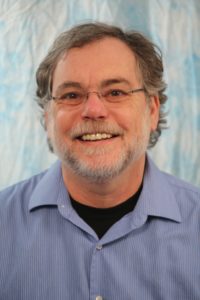Friday, September 27, 2019
2:00pm-3:00pm
Mechanical Engineering Building, MC102
5 King's College Road
Update: Date updated from Oct. 4 to Sept. 27
This event is open to the public and registration is not required.
View all upcoming MIE Distinguished Seminars.
Abstract
Real-time traffic signal control presents a challenging multi-agent planning problem, particularly in urban road networks where (unlike simpler arterial settings) there are competing dominant traffic flows that shift through the day. Further complicating matters, urban environments require attention to multi-modal traffic flows (vehicles, pedestrians, bicyclists, buses) that move at different speeds and may be given different priorities. For the past several years, my research group has been evolving a real-time, adaptive traffic signal control system to address these challenges, referred to as Surtrac (Scalable Urban TRAffic Control). Combining principles from automated planning and scheduling, multi-agent systems, and traffic theory, Surtrac treats traffic signal control as a decentralized online planning process. In operation, each intersection repeatedly generates and executes (in rolling horizon fashion) signal-timing plans that optimize the movement of currently sensed approaching traffic through the intersection. Each time a new plan is produced (nominally every couple of seconds) the intersection communicates to its downstream neighbors what traffic it expects to send their way (according to the plan), allowing intersections to construct longer horizon plans and achieve coordinated behavior. Initial evaluation of Surtrac in the field has demonstrated significant performance improvements and the technology is now deployed and operating in several US cities. More recent work has focused on integrating real-time adaptive signal control with emerging connected vehicle technology, and exploration of the opportunities for enhanced mobility that direct vehicle (or pedestrian) to infrastructure communication can provide. Current technology development efforts center on vehicle route sharing, smart transit priority, safe intersection crossing for pedestrians with disabilities, real-time incident detection, and integrated optimization of signal control and route choice decisions. In this talk, I’ll provide an overview of this overall research effort.
Bio
 Stephen Smith is a Research Professor in the Robotics Institute at Carnegie Mellon University, where he heads the Intelligent Coordination and Logistics Laboratory. He is also Co-founder and Chief Scientist of Rapid Flow Technologies, an intelligent transportations systems (ITS) technology company that is commercializing the Surtrac traffic signal control system. Smith’s research focuses broadly on the theory and practice of next-generation technologies for planning, scheduling, and coordination. He pioneered the development and use of constraint-based search and optimization models for solving planning and scheduling problems, and he has successfully fielded AI-based planning and scheduling systems in several application domains. Smith’s current research interests include execution-driven planning and scheduling systems, multi-robot path finding, agent-based models for distributed task and resource allocation, and intelligent transportation systems technologies. He was elected AAAI Fellow in 2007.
Stephen Smith is a Research Professor in the Robotics Institute at Carnegie Mellon University, where he heads the Intelligent Coordination and Logistics Laboratory. He is also Co-founder and Chief Scientist of Rapid Flow Technologies, an intelligent transportations systems (ITS) technology company that is commercializing the Surtrac traffic signal control system. Smith’s research focuses broadly on the theory and practice of next-generation technologies for planning, scheduling, and coordination. He pioneered the development and use of constraint-based search and optimization models for solving planning and scheduling problems, and he has successfully fielded AI-based planning and scheduling systems in several application domains. Smith’s current research interests include execution-driven planning and scheduling systems, multi-robot path finding, agent-based models for distributed task and resource allocation, and intelligent transportation systems technologies. He was elected AAAI Fellow in 2007.
MIE’s Distinguished Seminar Series features top international researchers and leading experts across major areas of Mechanical Engineering and Industrial Engineering. The speakers present about their latest research and offer their perspectives on the current state of their field. The seminars are open to the public and are part of the program requirements for MIE Master of Applied Science and PhD students. The Distinguished Seminar Series is coordinated by Associate Professor Edmond Young.